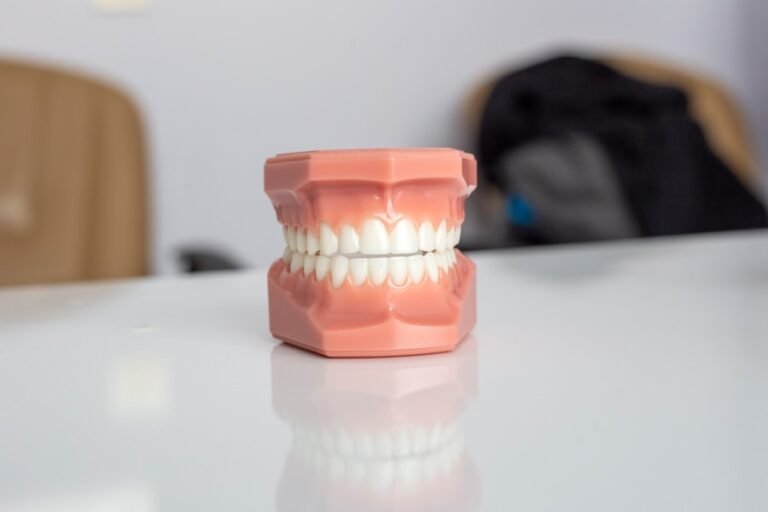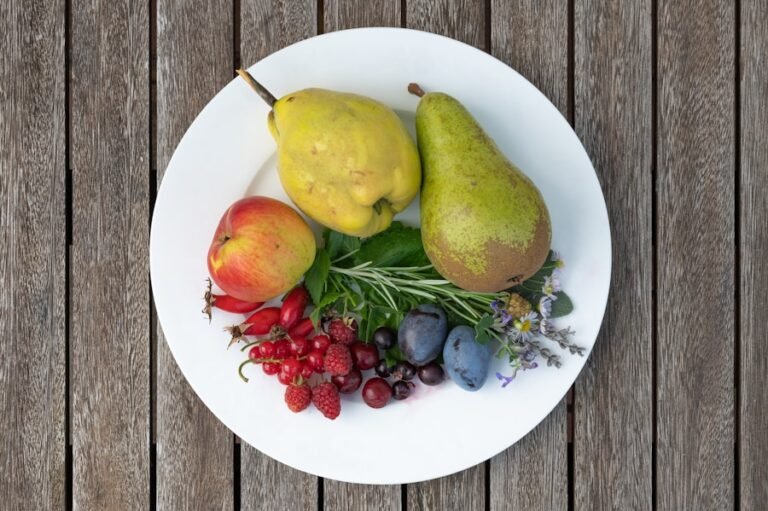Say Goodbye to Expensive Tests: Effective Home Remedies for Pregnancy Testing
Introduction: The Cost of Pregnancy Tests
Pregnancy tests are an essential tool for women who suspect they may be pregnant. However, the high cost of these tests can be a barrier for many women, especially those who are on a tight budget or do not have access to affordable healthcare. The average cost of a pregnancy test can range from $10 to $20, which may not seem like much, but for some women, it can be a significant expense. This is where home remedies for pregnancy testing come in as a cost-effective alternative.
The Science Behind Home Remedies for Pregnancy Testing
Home remedies for pregnancy testing have been used for centuries as a way to determine if a woman is pregnant. These remedies are based on the science of detecting the presence of human chorionic gonadotropin (hCG), a hormone that is produced by the placenta during pregnancy. The most common home remedies for pregnancy testing involve using household items such as toothpaste or bleach to detect the presence of hCG in a woman’s urine.
While these home remedies may seem unconventional, they are based on the principle that hCG can react with certain substances to produce a visible change. For example, in the toothpaste test, it is believed that if a woman is pregnant, her urine will cause the toothpaste to froth or change color. Similarly, in the bleach test, it is believed that if a woman is pregnant, her urine will cause the bleach to fizz or foam.
The Benefits of Using Home Remedies for Pregnancy Testing
One of the main benefits of using home remedies for pregnancy testing is cost-effectiveness. As mentioned earlier, traditional pregnancy tests can be quite expensive, especially for women who need to take multiple tests over time. Home remedies, on the other hand, use common household items that are readily available and inexpensive. This makes them a more affordable option for women who are on a tight budget.
Another benefit of using home remedies for pregnancy testing is convenience. Traditional pregnancy tests often require a trip to the store or a visit to the doctor’s office, which can be time-consuming and inconvenient. Home remedies, on the other hand, can be done in the comfort of one’s own home and at any time that is convenient for the woman. This can be particularly helpful for women who have irregular periods or who are trying to conceive and want to test frequently.
Furthermore, home remedies for pregnancy testing can be just as accurate as traditional pregnancy tests when used correctly. While they may not have the same level of sensitivity as some commercial tests, they can still provide reliable results. It is important to note, however, that the accuracy of these methods can be affected by factors such as timing and proper use. Therefore, it is essential to follow the instructions carefully and interpret the results correctly.
The Risks and Limitations of Home Remedies for Pregnancy Testing
While home remedies for pregnancy testing can be a cost-effective and convenient option, they do come with some risks and limitations. One of the main risks is the potential for false positives or negatives. False positives occur when a home remedy test indicates that a woman is pregnant when she is not, while false negatives occur when a test indicates that a woman is not pregnant when she actually is.
These risks can be minimized with proper use and understanding of the methods. It is important to follow the instructions carefully and use fresh ingredients to ensure accurate results. Additionally, it is recommended to confirm any positive results with a doctor to rule out any potential health issues or complications.
The Most Popular Home Remedies for Pregnancy Testing
There are several popular home remedies for pregnancy testing that have been used by women for generations. One of the most well-known methods is the toothpaste test. To perform this test, a woman simply needs to mix her urine with toothpaste and observe any changes in color or frothing. Another popular method is the bleach test, where a woman mixes her urine with bleach and looks for any fizzing or foaming.
Other home remedies for pregnancy testing include using sugar, vinegar, or dandelion leaves. Each method works on the principle that hCG in a woman’s urine will react with certain substances to produce a visible change. It is important to note that these methods are not scientifically proven and should be used as a preliminary test only.
How to Use Home Remedies for Pregnancy Testing
Using home remedies for pregnancy testing is relatively simple, but it is important to follow the instructions carefully to ensure accurate results. For the toothpaste test, a woman should mix her urine with a small amount of toothpaste in a clean container and observe any changes in color or frothing. For the bleach test, a woman should mix her urine with bleach in a clean container and look for any fizzing or foaming.
It is important to use fresh ingredients and clean containers to avoid any contamination that could affect the results. Additionally, it is recommended to perform the test in the morning when hCG levels are typically higher in a woman’s urine. This can increase the accuracy of the results.
How Accurate are Home Remedies for Pregnancy Testing?
The accuracy of home remedies for pregnancy testing can vary depending on several factors, including timing and proper use of the method. While these methods may not have the same level of sensitivity as some commercial tests, they can still provide reliable results when used correctly.
It is important to note that home remedies for pregnancy testing should be used as a preliminary test only and should not replace medical confirmation. If a home remedy test indicates that a woman is pregnant, it is recommended to confirm the results with a doctor through a blood test or ultrasound. This is especially important if there are any concerns about the accuracy of the home remedy test or if there are any potential health issues or complications.
The Importance of Confirming Pregnancy with a Doctor
While home remedies for pregnancy testing can be a cost-effective and convenient option, it is important to emphasize the importance of confirming pregnancy with a doctor. This is because home remedies are not scientifically proven and may not provide accurate results in all cases. Additionally, a doctor can provide valuable information and support throughout the pregnancy journey.
Confirming pregnancy with a doctor is particularly important if a home remedy test indicates a positive result. This is because there may be potential health issues or complications that need to be addressed. A doctor can perform a blood test or ultrasound to confirm the pregnancy and provide appropriate care and guidance.
When to Use Home Remedies for Pregnancy Testing
Home remedies for pregnancy testing may be appropriate in certain situations, such as when cost is a barrier or when traditional tests are not available. For women who are on a tight budget or do not have access to affordable healthcare, home remedies can provide a cost-effective alternative. Additionally, home remedies can be used when traditional tests are not available, such as in remote areas or during emergencies.
However, it is important to note that home remedies should not replace medical confirmation of pregnancy. If there are any concerns about the accuracy of the home remedy test or if there are any potential health issues or complications, it is essential to seek medical advice and confirmation.
Conclusion: Saving Money and Time with Home Remedies for Pregnancy Testing
In conclusion, home remedies for pregnancy testing can be a cost-effective and convenient alternative to traditional tests. They use common household items that are readily available and inexpensive, making them more affordable for women who are on a tight budget. Additionally, home remedies can be done in the comfort of one’s own home and at any time that is convenient for the woman.
While home remedies may not have the same level of sensitivity as some commercial tests, they can still provide reliable results when used correctly. It is important to follow the instructions carefully and interpret the results correctly. However, it is also important to emphasize the importance of confirming pregnancy with a doctor, especially if a home remedy test indicates a positive result.
Frequently Asked Questions About Home Remedies for Pregnancy Testing
Q: How soon after a missed period can I use a home remedy for pregnancy testing?
A: It is recommended to wait at least one week after a missed period before using a home remedy for pregnancy testing. This allows enough time for hCG levels to rise and be detectable in a woman’s urine.
Q: How do I interpret the results of a home remedy pregnancy test?
A: The interpretation of the results will depend on the specific method used. For example, in the toothpaste test, a positive result is indicated by a change in color or frothing, while a negative result is indicated by no change. It is important to follow the instructions carefully and refer to reliable sources for interpretation guidelines.
Q: Are home remedies for pregnancy testing safe to use?
A: Home remedies for pregnancy testing are generally safe to use when used correctly. However, it is important to follow the instructions carefully and use fresh ingredients to avoid any potential risks or contamination.
Q: Can I rely solely on home remedies for pregnancy testing?
A: While home remedies can provide a cost-effective and convenient option for pregnancy testing, it is not recommended to rely solely on them. It is important to confirm any positive results with a doctor through a blood test or ultrasound to rule out any potential health issues or complications.
Additional Resources
For readers who want to learn more about home remedies for pregnancy testing, there are several reliable resources available. Websites such as WebMD and Mayo Clinic provide information on the science behind these methods, as well as tips for proper use and interpretation of results. Additionally, healthcare professionals can provide valuable guidance and support throughout the pregnancy journey.
Pregnancy tests are an essential tool for women who suspect they may be pregnant. However, the high cost of these tests can be a barrier for many women, especially those who are on a tight budget or do not have access to affordable healthcare. The average cost of a pregnancy test can range from $10 to $20, which may not seem like much, but for some women, it can be a significant expense. This is where home remedies for pregnancy testing come in as a cost-effective alternative.
The Science Behind Home Remedies for Pregnancy Testing
Home remedies for pregnancy testing have been used for centuries as a way to determine if a woman is pregnant. These remedies are based on the science of detecting the presence of human chorionic gonadotropin (hCG), a hormone that is produced by the placenta during pregnancy. The most common home remedies for pregnancy testing involve using household items such as toothpaste or bleach to detect the presence of hCG in a woman’s urine.
While these home remedies may seem unconventional, they are based on the principle that hCG can react with certain substances to produce a visible change. For example, in the toothpaste test, it is believed that if a woman is pregnant, her urine will cause the toothpaste to froth or change color. Similarly, in the bleach test, it is believed that if a woman is pregnant, her urine will cause the bleach to fizz or foam.
The Benefits of Using Home Remedies for Pregnancy Testing
One of the main benefits of using home remedies for pregnancy testing is cost-effectiveness. As mentioned earlier, traditional pregnancy tests can be quite expensive, especially for women who need to take multiple tests over time. Home remedies, on the other hand, use common household items that are readily available and inexpensive. This makes them a more affordable option for women who are on a tight budget.
Another benefit of using home remedies for pregnancy testing is convenience. Traditional pregnancy tests often require a trip to the store or a visit to the doctor’s office, which can be time-consuming and inconvenient. Home remedies, on the other hand, can be done in the comfort of one’s own home and at any time that is convenient for the woman. This can be particularly helpful for women who have irregular periods or who are trying to conceive and want to test frequently.
Furthermore, home remedies for pregnancy testing can be just as accurate as traditional pregnancy tests when used correctly. While they may not have the same level of sensitivity as some commercial tests, they can still provide reliable results. It is important to note, however, that the accuracy of these methods can be affected by factors such as timing and proper use. Therefore, it is essential to follow the instructions carefully and interpret the results correctly.
The Risks and Limitations of Home Remedies for Pregnancy Testing
While home remedies for pregnancy testing can be a cost-effective and convenient option, they do come with some risks and limitations. One of the main risks is the potential for false positives or negatives. False positives occur when a home remedy test indicates that a woman is pregnant when she is not, while false negatives occur when a test indicates that a woman is not pregnant when she actually is.
These risks can be minimized with proper use and understanding of the methods. It is important to follow the instructions carefully and use fresh ingredients to ensure accurate results. Additionally, it is recommended to confirm any positive results with a doctor to rule out any potential health issues or complications.
The Most Popular Home Remedies for Pregnancy Testing
There are several popular home remedies for pregnancy testing that have been used by women for generations. One of the most well-known methods is the toothpaste test. To perform this test, a woman simply needs to mix her urine with toothpaste and observe any changes in color or frothing. Another popular method is the bleach test, where a woman mixes her urine with bleach and looks for any fizzing or foaming.
Other home remedies for pregnancy testing include using sugar, vinegar, or dandelion leaves. Each method works on the principle that hCG in a woman’s urine will react with certain substances to produce a visible change. It is important to note that these methods are not scientifically proven and should be used as a preliminary test only.
How to Use Home Remedies for Pregnancy Testing
Using home remedies for pregnancy testing is relatively simple, but it is important to follow the instructions carefully to ensure accurate results. For the toothpaste test, a woman should mix her urine with a small amount of toothpaste in a clean container and observe any changes in color or frothing. For the bleach test, a woman should mix her urine with bleach in a clean container and look for any fizzing or foaming.
It is important to use fresh ingredients and clean containers to avoid any contamination that could affect the results. Additionally, it is recommended to perform the test in the morning when hCG levels are typically higher in a woman’s urine. This can increase the accuracy of the results.
How Accurate are Home Remedies for Pregnancy Testing?
The accuracy of home remedies for pregnancy testing can vary depending on several factors, including timing and proper use of the method. While these methods may not have the same level of sensitivity as some commercial tests, they can still provide reliable results when used correctly.
It is important to note that home remedies for pregnancy testing should be used as a preliminary test only and should not replace medical confirmation. If a home remedy test indicates that a woman is pregnant, it is recommended to confirm the results with a doctor through a blood test or ultrasound. This is especially important if there are any concerns about the accuracy of the home remedy test or if there are any potential health issues or complications.
The Importance of Confirming Pregnancy with a Doctor
While home remedies for pregnancy testing can be a cost-effective and convenient option, it is important to emphasize the importance of confirming pregnancy with a doctor. This is because home remedies are not scientifically proven and may not provide accurate results in all cases. Additionally, a doctor can provide valuable information and support throughout the pregnancy journey.
Confirming pregnancy with a doctor is particularly important if a home remedy test indicates a positive result. This is because there may be potential health issues or complications that need to be addressed. A doctor can perform a blood test or ultrasound to confirm the pregnancy and provide appropriate care and guidance.
When to Use Home Remedies for Pregnancy Testing
Home remedies for pregnancy testing may be appropriate in certain situations, such as when cost is a barrier or when traditional tests are not available. For women who are on a tight budget or do not have access to affordable healthcare, home remedies can provide a cost-effective alternative. Additionally, home remedies can be used when traditional tests are not available, such as in remote areas or during emergencies.
However, it is important to note that home remedies should not replace medical confirmation of pregnancy. If there are any concerns about the accuracy of the home remedy test or if there are any potential health issues or complications, it is essential to seek medical advice and confirmation.
Conclusion: Saving Money and Time with Home Remedies for Pregnancy Testing
In conclusion, home remedies for pregnancy testing can be a cost-effective and convenient alternative to traditional tests. They use common household items that are readily available and inexpensive, making them more affordable for women who are on a tight budget. Additionally, home remedies can be done in the comfort of one’s own home and at any time that is convenient for the woman.
While home remedies may not have the same level of sensitivity as some commercial tests, they can still provide reliable results when used correctly. It is important to follow the instructions carefully and interpret the results correctly. However, it is also important to emphasize the importance of confirming pregnancy with a doctor, especially if a home remedy test indicates a positive result.
Frequently Asked Questions About Home Remedies for Pregnancy Testing
Q: How soon after a missed period can I use a home remedy for pregnancy testing?
A: It is recommended to wait at least one week after a missed period before using a home remedy for pregnancy testing. This allows enough time for hCG levels to rise and be detectable in a woman’s urine.
Q: How do I interpret the results of a home remedy pregnancy test?
A: The interpretation of the results will depend on the specific method used. For example, in the toothpaste test, a positive result is indicated by a change in color or frothing, while a negative result is indicated by no change. It is important to follow the instructions carefully and refer to reliable sources for interpretation guidelines.
Q: Are home remedies for pregnancy testing safe to use?
A: Home remedies for pregnancy testing are generally safe to use when used correctly. However, it is important to follow the instructions carefully and use fresh ingredients to avoid any potential risks or contamination.
Q: Can I rely solely on home remedies for pregnancy testing?
A: While home remedies can provide a cost-effective and convenient option for pregnancy testing, it is not recommended to rely solely on them. It is important to confirm any positive results with a doctor through a blood test or ultrasound to rule out any potential health issues or complications.
Additional Resources
For readers who want to learn more about home remedies for pregnancy testing, there are several reliable resources available. Websites such as WebMD and Mayo Clinic provide information on the science behind these methods, as well as tips for proper use and interpretation of results. Additionally, healthcare professionals can provide valuable guidance and support throughout the pregnancy journey.







